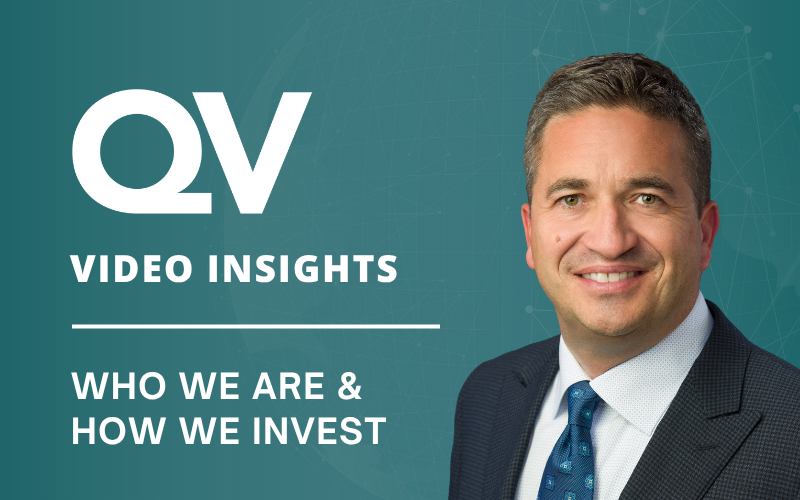“It has been far safer to steal large sums with a pen than small sums with a gun.” – Warren Buffet
In the spirit of Financial Literacy Month, we thought it was worth highlighting one of the most common types of financial exploitation – financial elder and/or vulnerable client abuse.
First, it is important to define what constitutes financial abuse. In the more obvious cases, there is clear and identifiable theft or fraud, such as cashing a cheque in someone else’s name and keeping the proceeds for your own use, or establishing an account (such as a credit card) in someone else’s name without their knowledge and consent. There is also the potential misuse of the authority granted to a Power of Attorney, which would include making decisions that benefit the person acting as attorney as opposed to what is in the best interest of the client. There are also much less obvious, but unfortunately more prevalent, acts of fraud that often go unnoticed until it is too late. This category might include undue influence on a vulnerable person to gift money and/or sell property or possessions, or pressure to change important estate documents such as a Will or Power of Attorney.
A person may be more susceptible to potential fraud after a major life event, such as a health crisis, the death of a spouse or partner, or once cognitive capacity starts to slip. These triggers may invite bad or desperate actors to prey upon people during these times of vulnerability. It often isn’t noticeable right away as the fraudster may be perceived to have the person’s best interests at heart and the actual act of fraud can form a pattern over time. Even more saddening is that often emotional and/or physical abuse may happen alongside financial abuse which also goes undetected for far too long.
As the Toronto Star recently pointed out, an alarming number of Canadian seniors are making fraud claims, amounting to $137.8 million in 2022. This number is inevitably and unfortunately expected to increase as Canada’s population ages and cognitive decline sets in.
Estate Planning Documents
We have been encouraging clients of all ages to ensure they have “the trifecta” of estate documents prepared – Will, Power of Attorney, and Personal Directive. These documents, prepared by a professional lawyer or paralegal, help to ensure that your best interests are protected and that your wishes are appropriately carried out in both life and death. These are best prepared well in advance of cognitive decline.
Even with advanced preparation, financial abuse can still occur through misuse of the authority granted by the Power of Attorney (POA) document. While that seems unconscionable, it is unfortunately more common than one would hope. The sole job of the attorney is to act in the best interest of the client, otherwise known as the donor. However, with far-reaching authority to handle the financial affairs of the donor with very limited restrictions, sometimes self-interest takes over. It is also important to note that granting POA to someone you trust is not for the purposes of avoiding probate through liquidation of accounts, nor can the attorney change the Will or Beneficiary/Successor Annuitant designations. This is why you will find that, at QV, we will always request to view an original or notarized copy of such documents to ensure any instructions we act on are consistent with the donor’s original intentions.
Trusted Contact Person
Beyond establishing the necessary legal documents, how else can one protect themselves from such exploitation? As financial abuse of vulnerable and older clients grew in prevalence, the Canadian Securities Administrators (CSA) thankfully introduced the concept of designating a Trusted Contact Person (TCP) as one of its Client Focused Reforms released in 2021.
Although the CSA has not made it mandatory, it strongly encourages all clients to elect a TCP. Ideally, a TCP should not have personal financial interest in a client’s assets. Rather, they should be someone with a close enough relationship to understand and confirm the client’s situation and behaviours, without conflicts that may ultimately interfere with what is in the client’s best interest. As such, the TCP does not have any authority to act on the client’s account. The TCP may be helpful in identifying and avoiding possible client exploitation. A TCP may also hold the role of Power of Attorney; however, for reasons stated above, it is encouraged that the roles remain separate.
How would QV utilize a TCP? Your Investment Counsellor or Private Wealth Associate may contact your TCP if they:
- are unable to reach you for urgent matters or after an extended period of time;
- have concerns about your understanding of your financial situation, your ability to make financial decisions, or the identity of your Legal Guardian, Trustee or Power of Attorney;
- need to address possible financial exploitation or other forms of abuse; or
- as otherwise permitted by applicable provincial and federal laws
In the event your QV representative is unable to satisfy their concern, the situation will be escalated to our Chief Compliance Officer who may put a hold on any withdrawal transactions until we are able to satisfy the concern.
Collaboration
The first line of defence is to spread awareness about the potential for financial abuse so that people are better equipped to identify fraud. In an increasingly complex financial world, it could be hard to discern what is and isn’t in one’s best interest. The next line of defence is to ensure all your personal representatives and professional service partners are collaborating to ensure that your best interests are at the forefront of every decision. If you do not feel that you have appropriate people in your life to act in the role of Executor or Power of Attorney, know that there are trust companies, some legal and accounting firms, and sole practitioners that specialize in these services. Your QV Investment Counsellor can help make introductions to such professionals. If you or a loved one has questions about how to protect against fraud or financial abuse, engage with your QV Investment Counsellor today.




